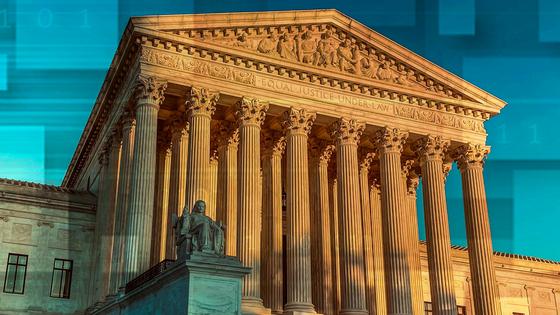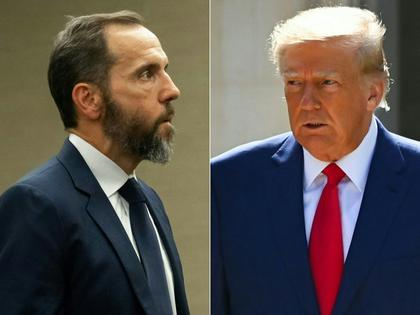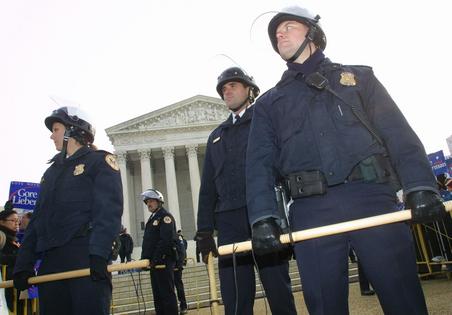Supreme Court’s slow roll on deciding Trump’s immunity is the opposite of politics
Published in Political News
Frustration is mounting as the country waits – and waits and waits – for the U.S. Supreme Court to issue its decision in Trump v. United States, the case that asks whether the former president is immune from criminal prosecution for what he did in the wake of the 2020 election.
For those on the left, the delay appears both political and purposeful, yet another example of conservative jurists in the court’s majority helping Trump avoid the accountability that might otherwise be inevitable.
I get it. The court’s failure to take the case when Special Counsel Jack Smith first requested in December 2023; its scheduling of oral arguments for late April 2024; and the ensuing months that have passed without a decision have made it quite likely that any trial of Donald Trump for his alleged coup will not happen soon. That is consequential.
But this doesn’t mean the court should depart from its standard operating procedure. In fact, if you ask the justices to proceed at anything other than their normally plodding pace, you are asking them to be exactly what critics so decry – political.
Here’s why.
When the Supreme Court makes a decision, it is inevitably answering a very difficult legal question. If the answers were clear, the case never would have been the subject of high court litigation in the first place.
The court takes a case generally not just to decide a particular winner or loser, but to instead formulate broad legal principles that will guide lower courts, other branches of government and even American citizens. The court indicated it was thinking about the big picture when it expanded the legal question from whether a former president is immune from criminal prosecution to how far that immunity should extend. The ultimate ruling here will have implications well beyond Donald Trump.
During oral argument, Justice Neil Gorsuch brushed aside the ugly details of what Trump allegedly had done, insisting the court was “writing a rule for the ages.” The comment drew ire from legal commentators for minimizing Trump’s alleged crimes, but as a scholar of the Supreme Court, I believe it was exactly right.
Once they changed the legal question to include “the extent to which the President enjoys immunity,” the case couldn’t be answered with a one word “yes” or “no.”
This case raises major questions about separation of powers, the power of the president, and the rule of the law. The Supreme Court has to transform those constitutional principles into workable legal doctrine that will apply well beyond the election of 2024. Writing such a rule is hard and takes time.
That rule has to be developed and justified through the rigor of legal discourse, which relies upon carefully constructed logic, sober analysis and appropriate use of legal precedent. Determining if, how and why previous cases shape a decision is painstaking to do, much less explain.
There’s a reason that judicial opinions can run upwards of 100 pages – they have to do a hell of a good job of justifying their choices.
Supreme Court decisions are never the product of any one single factor. No matter how much critics claim that the justices decide cases based primarily or solely on their political ideology, the evidence simply doesn’t bear this out.
Setting aside the obvious recent instances in which the conservative-dominated court acted in favor of more progressive interests, decades of empirical research from judicial politics scholars like myself have demonstrated that Supreme Court justices are not just what some call “politicians in robes” who vote the party line and use law as merely the fig leaf that disguises their ideology.
Instead, they are highly trained legal thinkers, acting within the constraints of the political environment and the law.
Perhaps setting aside Justice Clarence Thomas, whose outlier status became all the more clear when he just opined in a solo dissent that those subject to domestic violence restraining orders should have access to guns, the justices must think carefully about the preferences of others. Among them: other court members, Congress and the executive branch, as well American voters.
When the court blindly adheres only to its own political preferences, it risks backlash from the other branches and a loss of public trust.
Rapid decisions have come from the court, but they happen once in a blue moon and rarely stand up well to either legal analysis or history.
Bush v. Gore, in which the justices took only two days to decide the legally contested 2000 presidential election, was so badly reasoned that the court itself said never to look at it again.
Scholars have more respect for the court’s 1974 ruling, 16 days after the oral argument, that President Richard Nixon had to turn over the Watergate tapes to criminal prosecutors, but that decision left unanswered a range of legal questions about executive privilege. Those questions would be later raised in court by Presidents Bill Clinton, Barack Obama and Donald Trump.
Subsequent litigation is not always problematic. But it can, – as many argue is happening here – generate the use and misuse of the legal system to avoid legal consequences. Trump has made it to the high court in part because the most relevant prior ruling, in which the court held Nixon immune from civil liability, may or may not apply to Trump’s criminal charges.
In the current Trump case, the court has a steep hill to climb. Both sides agree that a former president cannot be prosecuted for his exercise of “core executive functions,” such as the presidential pardon and appointment powers. Both sides also agree that he can be prosecuted for any unlawful actions he took that were private, rather than official duties, such as his enlistment of Rudy Giuliani to help challenge the election results.
This is a significant area of overlap between opposing sides in this case. But between those poles lies a vast fog of presidential activity that may or may not be subject to oversight by the legal system. It is this fog that the court must pierce, and pierce well.
The good legal ruling needed here won’t be easily formulated. If the court ignored the trappings of legal decision-making, simply sending Trump off with a wave and a goodbye kiss, total – or no – immunity in hand, its own institutional legitimacy would plummet even further.
The justices must meet this moment and determine if a president is above the law. But they are right to also be cognizant that they too are subject to the gauntlet of legal reasoning and writing. A hurried, sloppy decision will have damaging ripple effects far beyond what Trump may have done three-and-a-half years ago.
Indeed, given the potentially unconstitutional actions Trump has threatened to take if re-elected, the country will need a strong and well-respected Supreme Court in the very near future. Those angry with the court should actually be very glad it is working as usual here. If it weren’t, their fear that Trump will get away with it all may indeed be realized.
This article is republished from The Conversation, a nonprofit, independent news organization bringing you facts and trustworthy analysis to help you make sense of our complex world. It was written by: Claire B. Wofford, College of Charleston
Read more:
What the Supreme Court is doing right in considering Trump’s immunity case
Trump’s immunity arguments at Supreme Court highlight dangers − while prosecutors stress larger danger of removing legal accountability
Can Trump be prosecuted? Supreme Court will take up precedent-setting case to define the limits of presidential immunity
In March 2024, I donated $25 to the Biden Victory Fund.


































































Comments